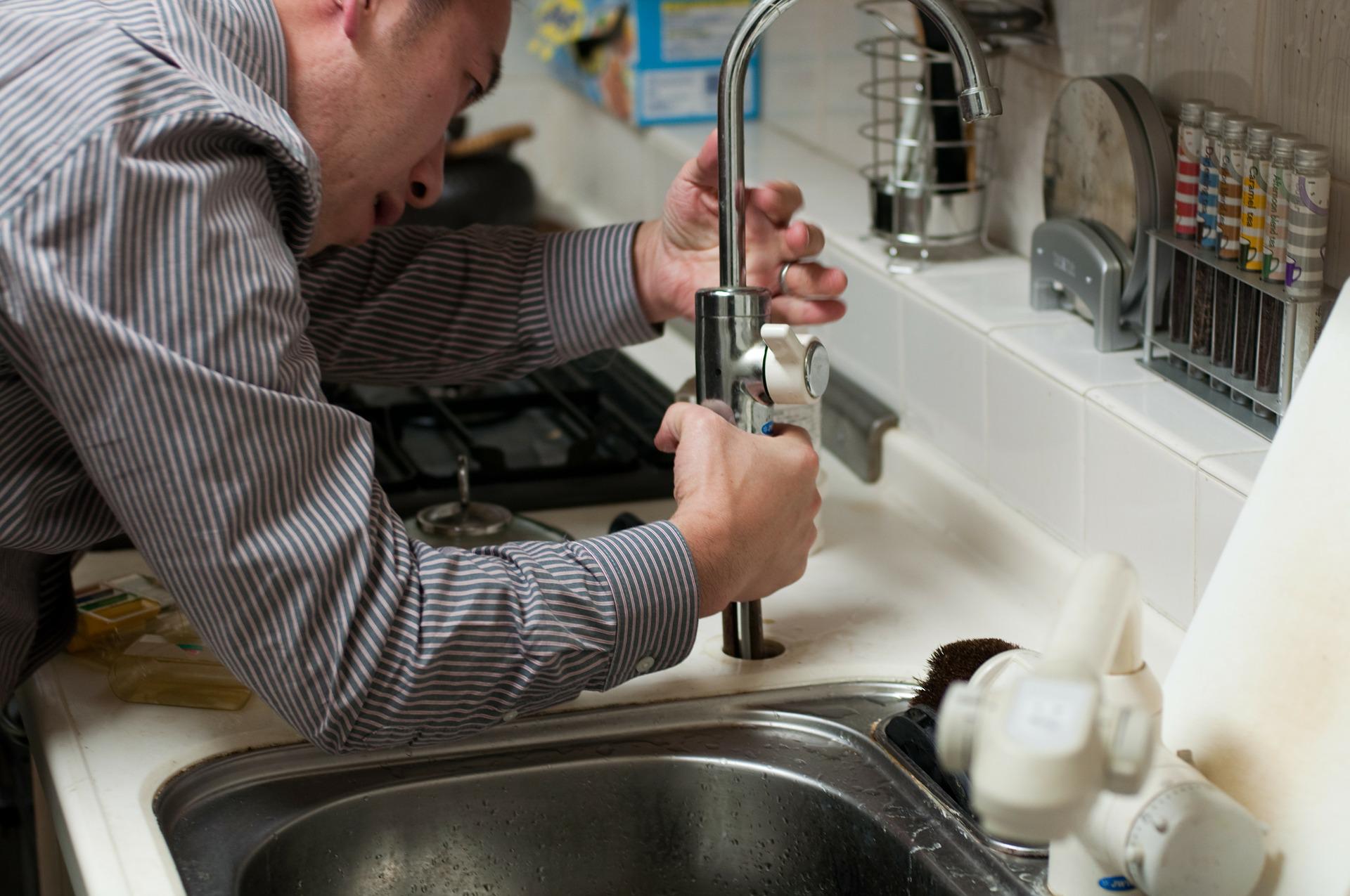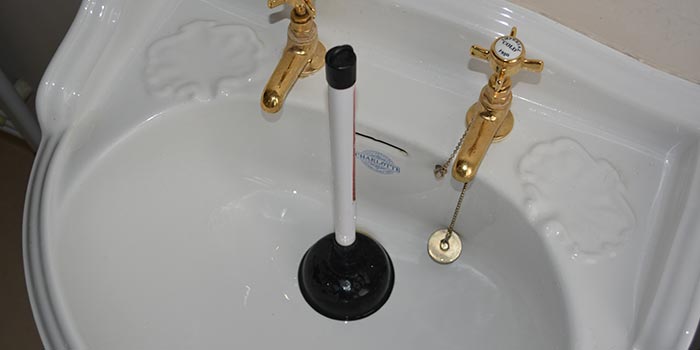This post in the next paragraphs about 4 Tips to Fix a Slow Draining Sink is truly entertaining. You should read it.

Introduction
We have actually all been there: You're brushing your teeth or washing your hands, and you discover the water merging in the sink. Rather than promptly swirling down the drain, it sticks around, transforming your once-refreshing early morning regimen right into a miniature swamp scene. A slow-draining sink isn't simply frustrating; it's commonly a sign of bigger pipes problems lurking beneath the surface. Fortunately is that many slow-draining sinks can be taken care of with a little expertise, a few standard devices, and some patience. Prepared to tackle this project head-on? Let's roll up our sleeves and dive right in.
Comprehending the Root Causes Of a Slow-Draining Sink
Prior to you begin poking around in your pipelines, it aids to recognize what could be causing the stagnation. Comprehending the source makes it simpler to select the appropriate repair.
Tools and Products You'll Need
The right devices make all the distinction. Luckily, you won't need a completely equipped plumbing technician's van to do the job.
Step-by-Step Guide to Repairing a Slow-Draining Sink
Now, let's enter the nitty-gritty. This step-by-step process will assist you with easy methods to recover your sink's water drainage.
Action 1: Remove and Tidy the Stopper
Usually, the stopper (that tiny plug you lower to block water) is the very first perpetrator. Remove it thoroughly and clean off any hair or crud entraped around its base. Rinse it completely prior to placing it back in place.
Step 2: Make Use Of a Plunger to Displace Debris
Got that bettor all set? Setting it over the drainpipe and give it a few company pumps. The concept is to create suction that can loosen any kind of clog. If you see bits of particles drifting up, you're on the ideal track.
Step 3: Try a Drain Serpent or Wire Hanger
If the bettor doesn't suffice, it's time to highlight the drainpipe snake. Delicately feed it right into the drainpipe and spin as you go. You may feel some resistance-- that's likely the clog. Maintain turning and drawing up until you get rid of the obstruction. If you do not have a drainpipe snake, an aligned wire wall mount can operate in a pinch.
Tip 4: Use a DIY Drain Cleanser
A natural cleaner made from cooking soda and vinegar can break down residual grime. Put half a mug of cooking soda into the drainpipe, complied with by half a mug of vinegar. Allow it fizz for around 15 mins, after that flush with hot water. This chemical reaction usually does wonders for small clogs.
Tip 5: Rebuild and Examine the Sink
Put everything back with each other and run the faucet. Does the water currently swirl away at a decent rate? If yes, offer on your own a pat on the back. Otherwise, do not anguish-- there are still a couple of more dress up your sleeve.
Essential Devices for DIY Services
A bettor is your go-to beginning factor. A little, sink-sized bettor creates suction that can displace minor obstructions. For more consistent obstructions, a drain snake (often called a plumbing professional's auger) works marvels. A pair of handwear covers, a flashlight, and maybe a pair of safety safety glasses are likewise convenient.
Recommended Cleansing Solutions
Light recipe soap and hot water can assist break down oily accumulation. A mixture of baking soft drink and vinegar is a tried and true natural remedy, and chemical cleaners offer a more environmentally friendly technique. Maintain chemical drainpipe cleansers as a last hope, as they can be extreme on your pipelines.
Usual Culprits Behind Slow Drainage
So, what's clogging points up? Typically, it's a mixture of everyday particles-- believe hair, soap scum, toothpaste residue, and remaining food bits. In time, these tiny bits gather and hold on to the pipe wall surfaces, slowly tightening the passage and making it harder for water to pass through. Sometimes, mineral deposits from tough water can likewise include in the substance, developing the ideal tornado for stubborn blockages.
When is it Time to Take Action?
If you see the water draining slower than normal, it's an excellent idea to step in faster as opposed to later on. Waiting also long can bring about finish clogs, unpleasant odors, or even pipeline damage. If the water takes more than a few secs to remove after turning off the faucet, consider it a red flag and prepare yourself to put on your do it yourself hat.
Security First: Precautions and Preparations
Prior to you launch into unclogging setting, think about safety. You're handling possibly filthy water and debris, so slip on a pair of gloves. If you're using chemical cleansers, guarantee the room is well-ventilated and comply with the guidelines on the tag.
Protective Gear and Work Area Configuration
Lay down some old towels or rags around the sink location to catch splashes. Remove any things that could enter your method, like soap dispensers or toothbrush owners. Make sure you have good illumination-- order a flashlight if needed.
Alternative Methods for Stubborn Clogs
Not all blockages are created equal. If your sink still declines to comply, take into consideration these alternate remedies.
Baking Soda and Vinegar Technique
We already discussed this, yet it's worth noting again. This mild, environmentally friendly approach is more secure than chemical cleansers and often rather efficient.
Chemical Drain Cleaners
Enzyme-based cleaners utilize natural bacteria to digest raw material. They're an excellent selection if you're aiming to prevent severe chemicals. Just bear in mind, they might take a bit longer to function their magic.
Chemical Drain Cleaners: Advantages And Disadvantages
Chemical cleaners can blast via challenging clogs fast, however they're not without drawbacks. They can create warmth and fumes, damage pipelines if made use of excessively, and position ecological threats. Use them sparingly, and constantly adhere to the directions very carefully.
Preventive Measures to Keep Your Sink Flowing
Avoidance is the most effective treatment. By adopting a few easy routines, you can maintain your sink from reducing in the first place.
Routine Cleaning Up Routines
Clean down the sink container and component location consistently. Get rid of hair or food fragments before they have a possibility to wash down the drainpipe.
Staying Clear Of Damaging Substances Down The Tubes
Think twice prior to unloading coffee grounds, grease, or coarse veggie scraps down the sink. These perpetrators cling to pipe wall surfaces, developing blockages with time.
Routine Maintenance Checks
Set up a quick monthly examination. Run hot water via the sink for a few mins, focusing on the circulation. If it seems slow-moving, act quick prior to it becomes a full-blown obstruction.
When to Call a Professional Plumbing Professional
In some cases, no matter exactly how difficult you attempt, that obstruct simply will not budge. That's when it's time to bring in the pros.
Indicators That Show an Extra Serious Issue
If your sink drains slowly regardless of numerous efforts, or if you observe water supporting in other fixtures (like your shower or toilet), you may have a more severe pipes concern prowling much deeper in the system.
Stabilizing DIY Initiatives with Expert Help
While DIY can save you cash and supply a feeling of achievement, there's no embarassment in calling a specialist. An expert plumbing can assess your whole plumbing arrangement, guaranteeing there's no underlying damages or long-term issue that could cost you much more in the future.
Contrasting Costs and Long-Term Solutions
Prior to choosing, think about the big picture. An inexpensive, quick fix may solve the issue momentarily, yet investing in a more long-term service might save you money and anxiety in the future.
Considering the Expenditures of Do It Yourself vs. Specialist Solutions
Do it yourself repairs typically set you back little bit more than the price of a bettor or a bottle of cooking soda. Expert services, on the other hand, come with a cost yet might stop repeated issues and pricey fixings later on.
Investing in Top Quality Fixtures and Upgrades
If your sink's style contributes to regular obstructions, it may be worth updating to higher-quality fixtures or modifying the plumbing format. Consider this an investment in your home's performance and convenience.
Final thought
A slow-draining sink can seem like a small irritation, yet it's commonly a sign that your plumbing needs a little tender loving care. By understanding the root causes, using the right tools and techniques, and dedicating to basic safety nets, you can maintain your sink moving freely. And when all else fails, never ever hesitate to call in an expert-- your home's pipes is worth the investment in care and upkeep.
Three Common Ways to Fix a Slow Drain
Baking Soda Method
Boil a full pot of water. Measure out cup of baking soda and pour it down the drain. Then take cup of the magical cleansing substance known as white vinegar and drop that down there too. Allow the mixture to fizz in the drain for five minutes as the vinegar and baking soda combine. Now dump in that whole pot of boiling water. This combination of cleaning substances should clear out anything that is causing your sink to drain slowly. If it doesn t...
Zip-It
If the baking soda method doesn t clear out your drain, it may be because a significant amount of hair and/or other debris has collected there and you need to remove it. Purchase a Zip-It tool at any home improvement or hardware store and insert it into your drain. It will catch any collected hair or debris that s blocking the flow of water. Pull it out. If it s got a big clump of hair, etc. on the end, you ve probably got your culprit.
Drain Cleaner
If these methods don t work, there is the standard drain cleaner that you can also buy in a hardware store or even your local grocery store. It s better if you can use a household solution, but these drain cleaners often work in a pinch. They re very simple to use. You generally just dump them in your drain and wait. If even this method is not effective, it may be time to call the plumber.
https://www.mrrooter.com/oneida/about-us/blog/2017/july/three-common-ways-to-fix-a-slow-drain/

As a keen reader about Solved! How to Fix a Slow Sink Drain, I was thinking sharing that excerpt was worth the trouble. Appreciated our posting? Please quickly share it. Let other people find it. Many thanks for taking the time to read it.
Request An Estimate
Comments on “Detailed Guide To Fixing A Slow-Draining Sink”